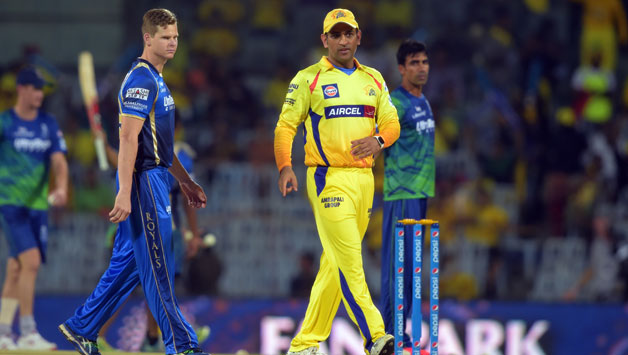
Cricket Country Staff
Editorial team of CricketCountry.
Written by Cricket Country Staff
Published: Jul 19, 2015, 12:30 PM (IST)
Edited: Jul 19, 2015, 12:30 PM (IST)


Mumbai: The Indian Premier League (IPL) governing council headed by Rajiv Shukla will meet Sunday afternoon in order to discuss and analyse the Justice RM Lodha Committee’s report on the 2013 spot-fixing scandal, which imposed a two-year suspension on Chennai Super Kings (CSK) and Rajasthan Royals (RR). Also, the Supreme Court’s panel declared CSK official Meiyappan and RR’s co-owner Raj Kundra guilty, and forced life suspensions on the duo. READ: Shashank Manohar blames N Srinivasan for IPL mess; Asks him to step down as ICC chairman
There were reports earlier that, along with the IPL verdict discussions, the meeting will also be regarding the plan of action for the upcoming ICC World T20 league 2016, which is being hosted by India. Although, current president of Board of Cricket Control in India (BBCI) Jagmohan Dalmiya might skip this meeting for some unknown reasons.
The IPL governing body urgently needs to chart out a smooth road map for the cash-rich but controversy-ridden T20 League, owned by the BCCI that has teetered on the edge for quite some time. READ: BCCI chief Jagmohan Dalmiya to skip IPL meeting on Sunday
However, the chairman of IPL has assured that the next edition of famous T20 league will not be affected by the recent wrong doings and also it will be a bigger success than the previous years. “We are always concerned about IPL and let me assure you the next edition will be a bigger success. IPL is a robust product and this judgement [suspension of teams] should not affect IPL as a product. The idea is to have the tournament in full format with a minimum of eight teams. We can’t hold the event with six teams,” Shukla had said.
(With inputs from agencies)
This website uses cookies so that we can provide you with the best user experience possible. Cookie information is stored in your browser and performs functions such as recognising you when you return to our website and helping our team to understand which sections of the website you find most interesting and useful.
Strictly Necessary Cookie should be enabled at all times so that we can save your preferences for cookie settings.
If you disable this cookie, we will not be able to save your preferences. This means that every time you visit this website you will need to enable or disable cookies again.
